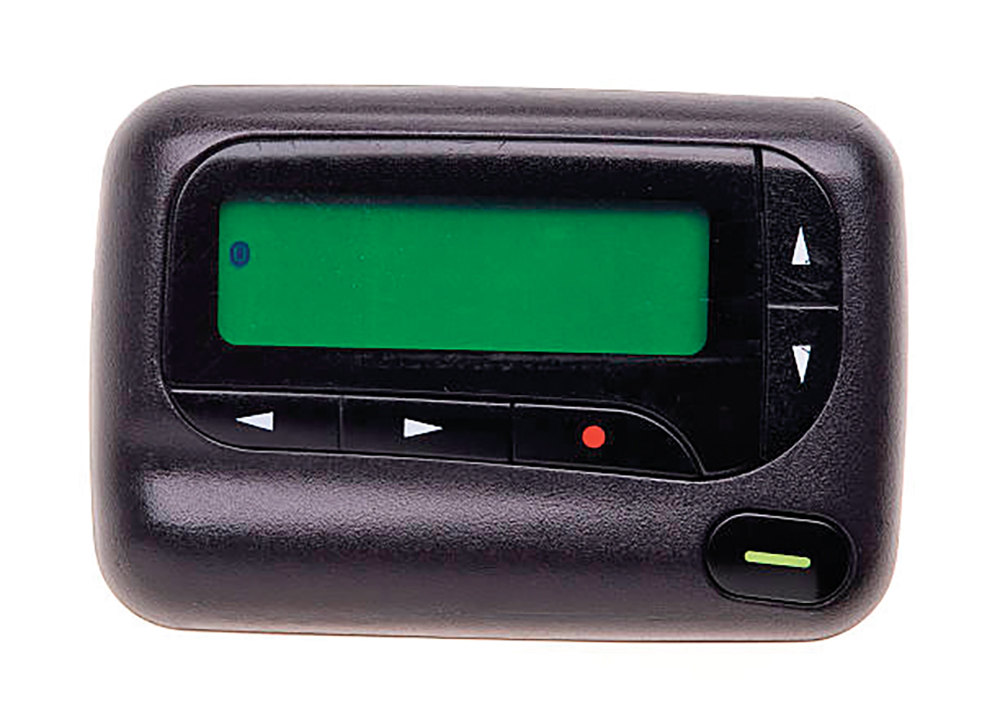
In today’s age of smartphones and instant messaging, it’s easy to forget a time when staying connected meant carrying around a pager—often called a “beeper” by many of us. But recently, I was reminded of this retro tech when I heard that pagers were being used during the recent conflict in Israel. Believe it or not, Israel’s adversaries were using pagers to keep off the digital grid, thinking they could evade modern surveillance. However, Israel quickly caught on, and turned the tables by intercepting their messages, proving that even the most basic tech can still be a game-changer.
The Power of Low-Tech Solutions
Pagers might seem like ancient history for most of us, but Israel’s enemies brought them back into focus. In a world where everything is “smart”—from phones to homes—pagers offer a surprisingly stealthy way to communicate under the radar. But what these people didn’t count on was Israel’s technological prowess, transforming something as simple as a pager into a strategic advantage. It’s a great reminder that even “low-tech” tools can be incredibly powerful, depending on whose hands they’re in.
My Beeper Days
Thinking back, I have my own memories from the pager era. Before I even turned 21, I worked for a pager company. That world was its own kind of Wild West—if you didn’t pay your bill or switched services, you could lose your number altogether. In fact, there was this whole underground market of swapping pager numbers, and sometimes you’d end up with someone else’s beeper, receiving messages meant for them. Despite all that chaos, pagers were indispensable. All it took was one little beep, and people felt connected—especially once alphanumeric messaging came along.
The Alphanumeric Revolution
When pagers evolved to alphanumeric models, it felt like a major leap. Instead of just a phone number flashing on the screen, you could actually receive a short message. I still remember dialing a 1-800 number, telling the operator what to send, and watching as they beamed the message right to someone’s pager. Looking back, it seems so basic, but at the time, it felt like we were on the cutting edge of technology.
Pagers’ Secret Weapon: Coverage
One thing pagers had over early cell phones was coverage. I remember driving up to the far reaches of upstate New York, where cell signals were practically non-existent. But pagers? They still worked like a charm. That reliable “beep” would find you no matter where you were, even in the most remote areas. Early cell phones simply couldn’t compete with that level of dependability.
My Palm Pilot and the First Cell Phones
I still have a little relic from those days—an old Palm Pilot with an antenna that was supposed to make cell phone calls. It never really worked, but it was a fun gadget to have back then. My mother-in-law gave it to me, and I’ve kept it as a piece of tech history.
I was lucky enough to be an early adopter of cell phones. A family friend who sold cell phones got me one about 30 years ago, well before they became mainstream. Back then, they were absurdly expensive, and there was only one carrier. I remember when people carried around not just one, but three devices—a beeper, a PDA like my Palm Pilot, and a cell phone. It seems almost laughable now, but that’s how we stayed connected back then.
The Final Evolution of Pagers
The last big innovation for pagers was two-way communication. The final pager I had allowed you to actually respond to a page, which was revolutionary at the time. It was almost like the precursor to texting. But as cell phones became more advanced, pagers started to fade out. By the time my daughter was born, 20 years ago, pagers were still around, but it was clear they wouldn’t be for much longer.
Pagers in Today’s World
After I moved to Teaneck, I was surprised to see that some professionals still used pagers. One morning in shul, I saw a doctor with a pager that could actually play back voice messages. It was far more sophisticated than the ones I had worked with, but it was a reminder that even today, some people rely on these devices for their simplicity and reliability.
The Legacy of the Beeper
Pagers might seem like relics of the past, but their legacy endures. As we saw in Israel, sometimes older technology can play a crucial role, especially when modern systems are vulnerable to hacking or interception. The people who thought they could stay hidden by using pagers learned the hard way that even outdated tech can be leveraged in clever ways.
Looking back, pagers were the bridge between landlines and the cell phones we carry in our pockets today. While most of us have moved on, there was a time when those little beeping devices were essential to staying connected—and for some, they still are.
Shneur Garb is the founder and CEO of The Garb I.T. Consulting Group and The Garb Cloud Consulting llc.








